5 signs you're watching a Guy Ritchie movie
The Gentlemen, out this weekend, is the 11th feature film from Guy Ritchie. Though it follows franchise reboots like the live-action Aladdin and The Man From U.N.C.L.E. in the director’s recent filmography, The Gentlemen also bears a strong resemblance to Ritchie’s early work like Lock, Stock, and Two Smoking Barrels. Given those parallels, we decided to identify the signature signs that you’re watching a film directed by Ritchie.
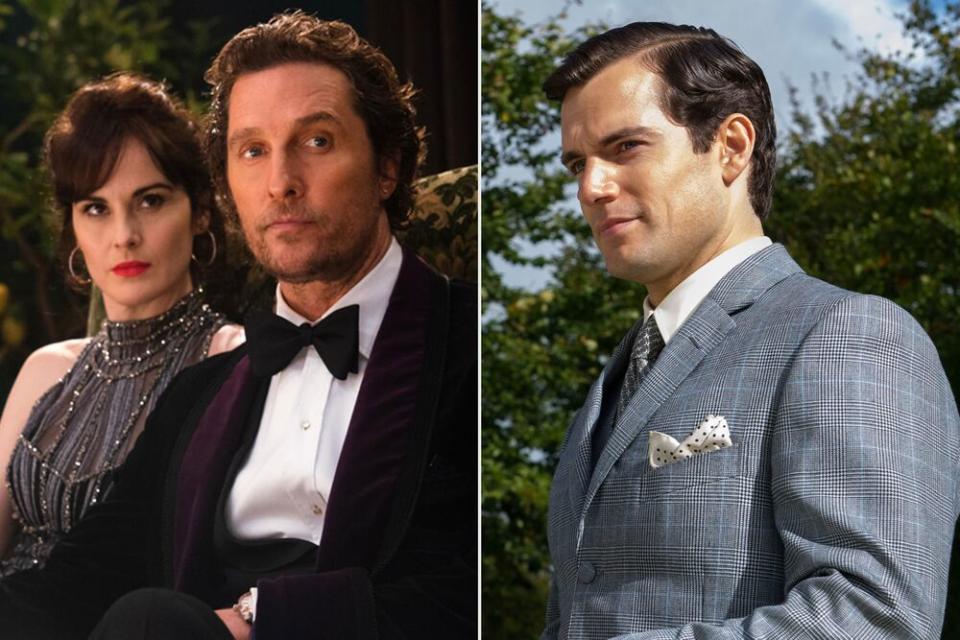
Plans within plans
Everyone is scheming in a Ritchie movie. Whether they’re spies, criminals, or pickpockets, all his characters are always trying to come out on top of chaotic situations with lots of moving pieces. The Gentlemen has many players: Dry Eye (Henry Golding) is trying to seize Mickey Pearson’s (Matthew McConaughey) marijuana business out from under him at the same time that Mickey is trying to sell it to Matthew Berger (Jeremy Strong) while also avoiding the blackmail schemes of tabloid journalist Fletcher (Hugh Grant). Suffice to say, all the pieces get scrambled multiple times and no one ends up quite where they expected to.
Sometimes these machinations are beautifully clean, such as in the climax of Snatch when Mickey O’Neil (Brad Pitt)’s Irish Travellers turn the tables on gangster Brick Top (Alan Ford) right at his assumed moment of triumph. Sometimes they’re messy, like in Lock, Stock, and Two Smoking Barrels when the two incompetent criminals hired by Barry the Baptist (Lenny McLean) to steal the titular shotguns end up dying in a fatal confrontation with Barry after a case of mistaken identity. And sometimes these plans are very compact: Sherlock Holmes (Robert Downey Jr.) can win fistfights just by running quick calculations in his head. It’s not until his confrontation with Professor Moriarty (Jared Harris) in Sherlock Holmes: A Game of Shadows that Holmes realizes he’s not the only one who does this. At that point, it becomes a contest to see who can outthink the other fastest on top of the Reichenbach Falls.
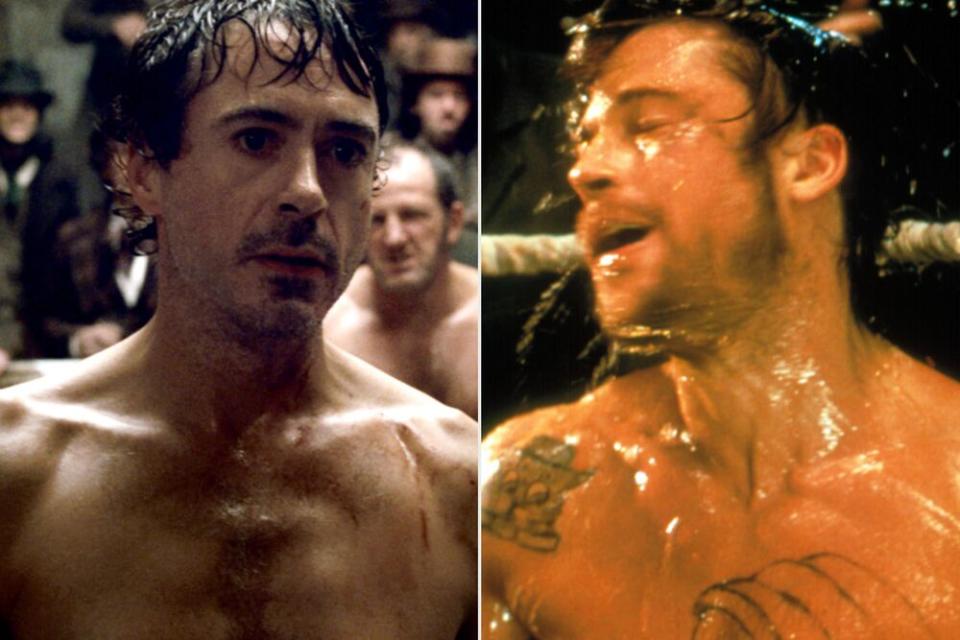
Shirtless fist-fighting
Characters in Ritchie films spar with words as often as they fight with fists, but when it is time for bare-knuckle brawling, they don’t hold back — and rarely keep their shirts on. This makes sense in the context of Snatch, which focuses on the world of underground boxing. When Brad Pitt’s Irish Traveller boxer Mickey O’Neill takes his shirt off, that’s when you know he’s not holding back anymore. But even Ritchie’s Sherlock Holmes likes to take his shirt off for boxing matches to clear his head. Charlie Hunnam’s titular protagonist of King Arthur: Legend of the Sword might not have held a sword before pulling Excalibur from its stone, but he did learn to fight by (you guessed it) shirtless fist-fighting with his fellow lost boys on the streets of Londinium.
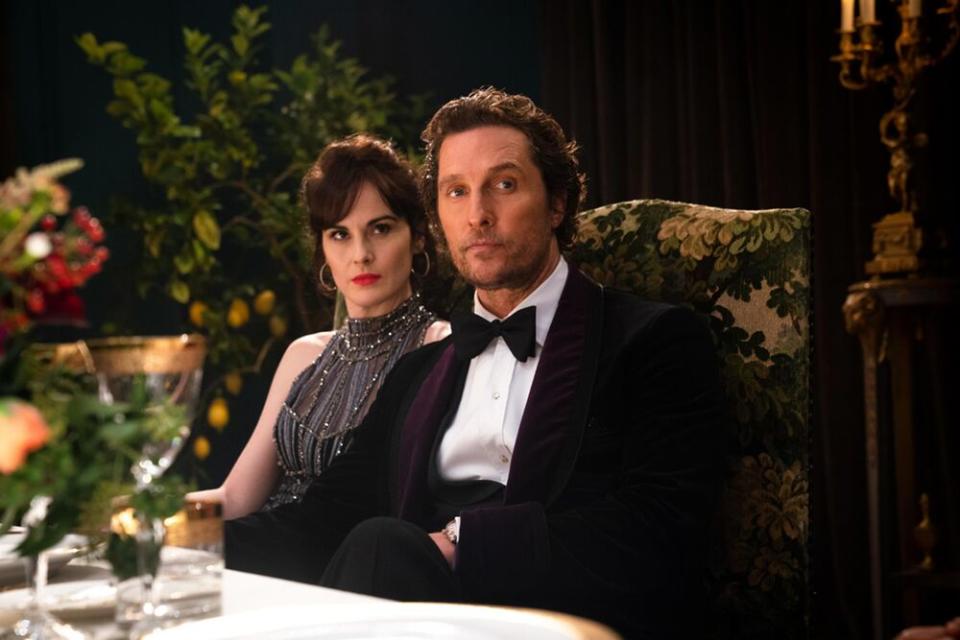
One woman allowed
It must be said: Ritchie’s films are heavy on testosterone. Released one year after Fight Club, Snatch also boasted a shirtless Brad Pitt but lacked a female presence on the level of Helena Bonham Carter’s Marla Singer. The Gentlemen has Michelle Dockery’s Rosalind Pearson, but she is the only major female character in the main cast. It was the same for Àstrid Bergès-Frisbey in King Arthur: Legend of the Sword, though her character didn’t even get a name; she was referred to solely as “The Mage.”
In an interesting twist, last year’s Aladdin was an exception to this Ritchie trend. Princess Jasmine (Naomi Scott) was given more independence and characterization than she got in the 1992 animated original, as well as her own new song. On top of that, she even got a female best friend in the form of new character Dalia (Nasim Pedrad).
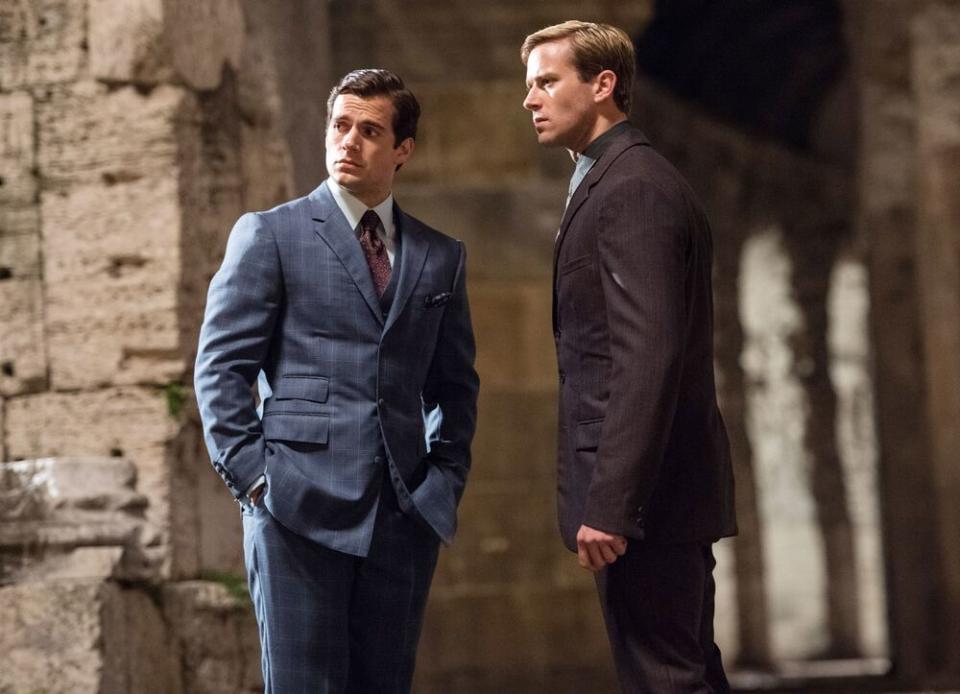
Guys are ridiculously strong
Ritchie has not yet directed a superhero movie, but many of his characters exhibit physical strength almost on the level of superpowers. The first meeting between Napoleon Solo (Henry Cavill) and Illya Kuryakin (Armie Hammer) in The Man From U.N.C.L.E. features Illya chasing Napoleon’s car on foot and nearly catching up. But though he doesn’t catch the car, Illya does manage to rip its trunk off, horrifying Napoleon to such an extent that he initially refers to the KGB operative as “it” in his report to CIA superiors. In Snatch, Mickey earns his nickname “One-Punch” by consistently knocking out massively built opponents with a single blow, something you wouldn’t guess from his lean physique. Charlie Hunnam’s Arthur seems like a normal human…until he’s got Excalibur in his hand. The sword is bound to his bloodline so only Arthur can wield it, and when he does, he can send dozens of men flying through the air with a single slash.
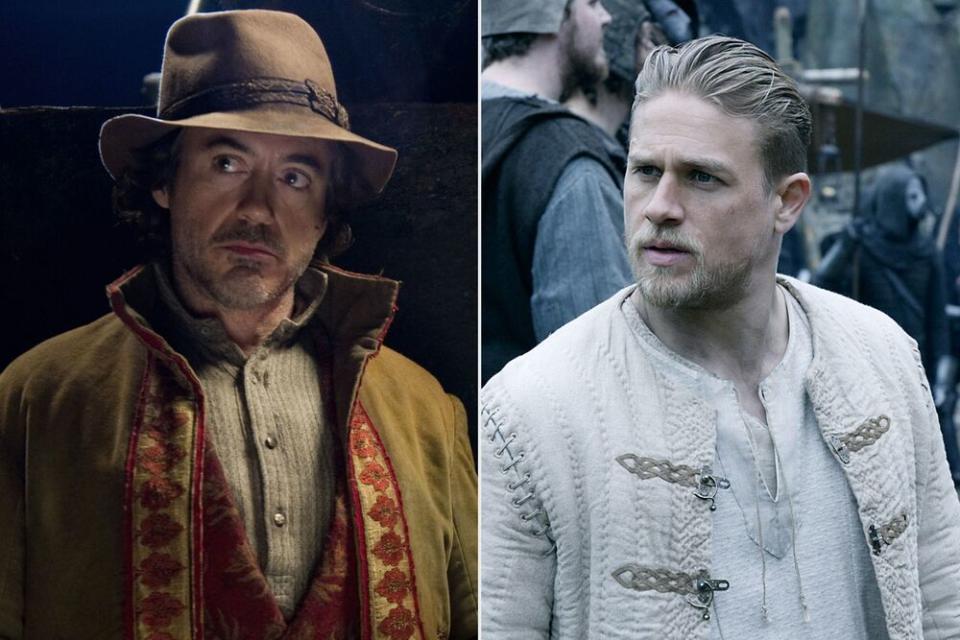
Icons of British Literature
Within the span of a decade, Ritchie directed films about both Sherlock Holmes and King Arthur, two of the biggest titans in British literature. Those characters have been interpreted and reinterpreted endless times over the course of their careers, and Ritchie put his own spin on them. His Arthur (played by Hunnam) was raised on the streets of medieval London by prostitutes and criminals, and his Holmes (Downey) prefers working-class neighborhoods to the academic finery of his rival Professor Moriarty.
Ritchie even adds British imprints to stories from outside his country’s canon: The Man From U.N.C.L.E. is based on an American show about CIA and KGB agents forced to cooperate, but Hugh Grant’s MI6 agent Alexander Waverly turns out to be one of the most influential players of all.
Related content:

